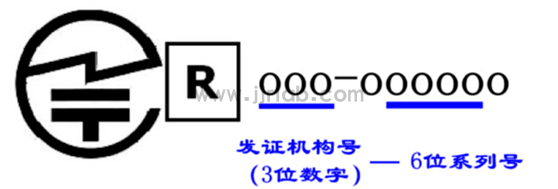
What is Japan’s Telecommunications Law JATE Certification?
JATE Certification (officially now called giteki certification) is a mandatory certification under Japan's Telecommunications Business Law, overseen by the Ministry of Internal Affairs and Communications (MIC). It ensures that communication devices comply with Japan’s network compatibility, safety, and protocol standards. Since 2018, the traditional "JATE" name has been integrated into "giteki," though the industry still commonly uses the old term. Key points are as follows:

Basic certification Information
1. Legal Basis:
- Law: Telecommunications Business Law
- Scope: Applies to devices connecting to Japan’s public telecommunications network
- Core Objective: Verify device compatibility on public networks, safety (e.g., encryption protocols), and interference resistance
2. RegULatory Authority:
- Regulator: Ministry of Internal Affairs and Communications (MIC)
- Authorized Bodies: JATE official organization or third-party labs (e.g., JJR Lab)
Applicable Product Range
Mandatory certification applies to devices that meet any of the following categories:
1. Mobile Terminals
- Examples: Mobile phones (2G–5G), smartwatches, tablets
- Requirements: Must support Japanese carrier protocols (e.g., DoCoMo, SoftBank)
2. Network Devices
- Examples: Routers, modems, IoT devices (including WiFi 6E)
- Requirements: 5G devices must support Japanese bands (n77/n78/n79)
3. Traditional Communication Devices
- Examples: Landline phones, fax machines, ISDN terminals
- Requirements: Must be compatible with local network standards (e.g., PHS)
4. Exemptions:
- Non-networked devices (e.g., calculators)
- Products using pre-certified modules (e.g., Qualcomm Snapdragon X75)
5. Dual Certification Requirement:
- Wireless communication devices (e.g., Bluetooth headsets, WiFi routers) must also obtain telec certificationfor RF compliance under the Radio Law
Certification Process & Key Steps
1. Preparation:
- Technical Documents: Circuit diagrams, PCB layouts, BOM (Japanese/English), Japanese manuals (mandatory), certification info for key components
- Sample Requirements: Two finished units + RF-specific prototypes (for frequency-specific testing)
2. Testing Scope:
- Core Protocol Tests: 12 functions, including location registration control, channel switching, and transmission timing
- 5G Enhanced Tests: NSA/SA dual-mode compatibility, 28GHz mmWave stability
- Network Security: Mandatory support for TLS 1.3 encryption
3. Certification & Marking:
- Upon passing, a certificate is issued and product info is published on the JATE website and government gazette
- Product Marking: “T” mark + serial number (height ≥5mm; for small devices ≥3mm)
Technical Compliance Requirements
1. Document Language:
- Manuals and warning labels must be in Japanese
2. Design Change Management:
- Hardware changes (e.g., baseband chip or RF module) require re-certification
- Software updates affecting communication protocols require a change declarationto MIC
3. Frequent Failures:
- Protocol compatibility: 40% fail due to channel switching delays (requires software stack optimization)
- Label errors: Missing or incorrect “T” mark or carrier-specific info
Costs & Timeline
1. Testing Fee:¥20,000–100,000
- 4G phone ~¥30,000; 5G device ≥¥50,000
2. Audit Fee:¥50,000–200,000
- Higher for technical requirement certification
3. Expedited Service:Standard +30%
- REDuces cycle to 3 weeks (limited labs)
4. Standard Cycle:4–8 weeks
- Testing 3–6 weeks + Audit 1–2 weeks
5. Optimization Tips:
- Pre-inspection simulation tests reduce re-test risk by 50%
- Modular design using pre-certified modules (e.g., Nordic) may exempt testing fees
Compliance Risks & Consequences
- Without certification: Customs detention, fines up to ¥5 million (~¥250,000), sales ban
- Market inspection: Certification has no fixed validity but requires annual type inspections
Summary & Recommendations
1. Necessity:
- Devices directly or indirectly accessing Japan’s public network must be certified; wireless devices require additional TELEC certification
2. Key Compliance Points:
- Japanese technical documents and labels
- 5G dual-mode compatibility (NSA/SA) and TLS 1.3 support
- Proper marking with the “T” logo
3. Efficiency Tips:
- Prefer pre-certified modules
- Use lab pre-inspections (protocol simulations) to reduce re-test risk
Note:
- The 2025 regulations do not add factory audits but strengthen 5G and network security testing requirements.
- For specific product evaluation or expedited service, contact MIC-authorized labs (e.g., JJR Lab)
Email:hello@jjrlab.com
Write your message here and send it to us
 European Toy Safety Standard EN 71-20:2025
European Toy Safety Standard EN 71-20:2025
 EN 18031 Certification for Connected Devices on Am
EN 18031 Certification for Connected Devices on Am
 Compliance Guide for Portable Batteries on Amazon
Compliance Guide for Portable Batteries on Amazon
 2026 EU SVHC Candidate List (253 Substances)
2026 EU SVHC Candidate List (253 Substances)
 LFGB Certification Cost and Timeline Guide
LFGB Certification Cost and Timeline Guide
 Bluetooth FCC Test Report
Bluetooth FCC Test Report
 Is FCC Testing Required?
Is FCC Testing Required?
 Where to Find FCC Test Reports
Where to Find FCC Test Reports
Leave us a message
24-hour online customer service at any time to respond, so that you worry!




